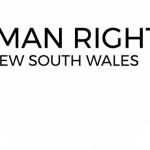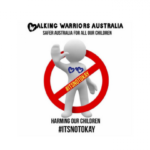Are The New Apps That May Be Giving Taxi Drivers A Run For Their Money Compliant With NSW Laws?

Many people who have shared a road with an arrogant taxi driver often get the impression that taxi drivers think they are a law unto themselves.
One cab driver, Eienddin Sanai, named and shamed in the Daily Telegraph earlier this year has had over 61 run-ins with customers– if this made you a little concerned, don’t worry, because he will be doing some customer care and legal courses before he is allowed back on the road.
Let’s just hope that they will be more effective than the ones he was forced to attend in 2012.
But seriously, taxis are not always reliable and their drivers have a reputation for being aggressive. Most people will probably be able to recall a time when their taxi didn’t show up or the driver was rude.
In the past there has been little choice – but now, apps like Uber and Backseat have emerged, perhaps giving Sydney-siders a new alternative to taxis.
Uber, the new quasi-taxi services (or taxi-alternative) that allows people to find and hire drivers (both taxi drivers, and members of the public) in their local areas, with a screen showing you where on a map the closest drivers to your current location are.
Backseat is a service where passengers make a contribution to their driver – someone who is already going in their direction, allowing them to make a little money, fill up empty car seats and offering passengers a much cheaper price than a taxi.
However, while taxi drivers may not be sticklers for the rules when it comes to their own driving, they are certainly keen to see the rules enforced against these new threats to the taxi industry.
The new business models have taxi drivers and the NSW Taxi Council up in arms about the threat to their business. But it also raises another issue – these new services are not subject to the same rules and regulations as taxi drivers are.
The NSW Taxi Council emphasises the dangers that using unauthorised apps to catch a ride might bring, such as abusive drivers who are not subject to the same complaints process as taxi drivers, nor are they licensed.
They point out the sanctions that misbehaving taxi drivers may face include a fine, time off the road or a loss of driver authority.
Backseat claims that its safety precautions are even stricter than a regular company, including driver ratings and a driver screening process, which involves criminal and driving history background checks.
Queensland Premier has given Uber ride-share the green light, saying it won’t be regulated, but the NSW Transport Authority said it is not allowed here.
Transport authorities in NSW have recently ruled that apps like Uber do not comply with current laws – motorists who are not taxis or hire cars are not allowed to receive money for lifts.
In NSW all drivers must be accredited under the Passenger Transport Act 1990 (NSW), and the behaviour for their conduct is set out under the Passenger Transport Regulation 2007 (NSW).
Backseat may have hoped that framing its service as a “contribution” scheme – perhaps they hoped it would not technically count as a fare, if passengers merely chipped in – would not get caught under legislation, this is not the case. Backseat delayed their launch in Australia.
But Uber decided to go ahead and launch its app, despite a warning from the Transport Authorities just hours before, of threatened fines up to $110,000 for non-compliance.
The Taxi Council makes some fair points about the safety concerns with apps like Uber, but we can’t really avoid the suspicion that their motivation is more about protecting their business, not ensuring that citizens stay out of harms way.
Perhaps new alternatives to taxi drivers might be an incentive for the taxi industry to ensure customer satisfaction, if they can no longer rely on their monopoly.
To read more topical news stories about the law, take a look at our regularly updated blog.






